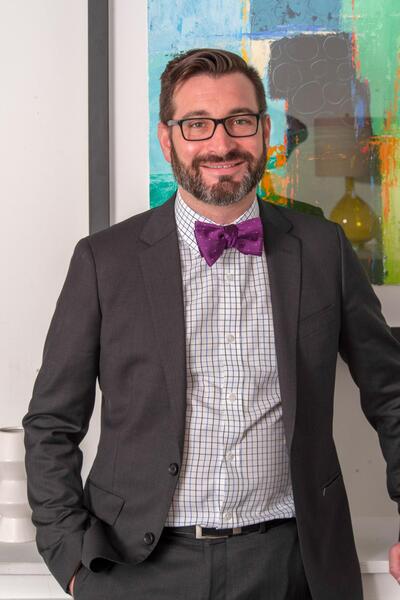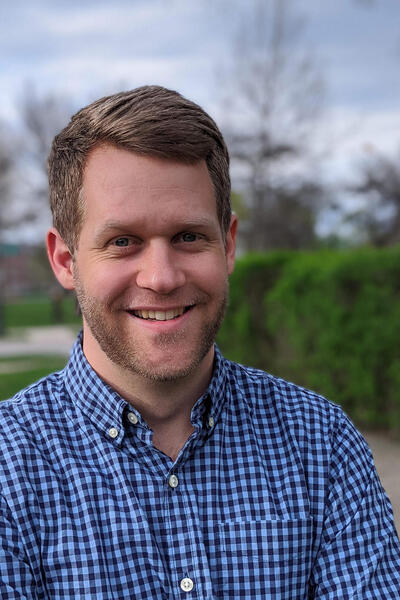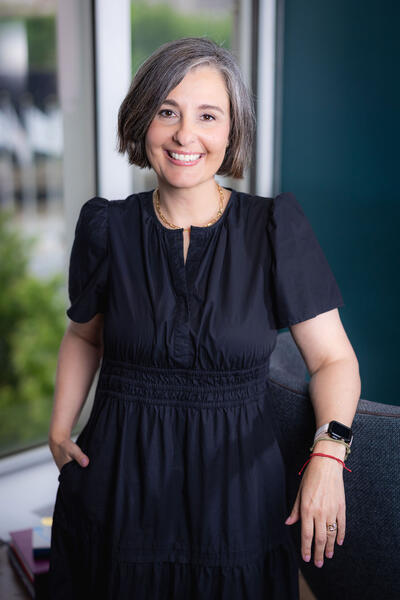Learn more about the research and scholarly interests of some of our faculty, staff and fellows.
I have several lines of research, including: (a) how to develop a sense of community in online education, (b) the development of neuroscience-informed cognitive behavioral therapy, (c) exploration of neuromyths and neuroscience knowledge among professionals, and (d) evaluation of a group intervention for cancer caregivers.
My research interests are related to multiculturalism and cultural competence in the education, training and practice of mental health professionals. My current research is a qualitative exploration of how racial identity impacts African American therapists’ experience of their clinical work with same-race counseling dyads. The desired future impact for my body of research is increasing the efficacy of counselor preparation for a more multicultural and diverse society. To that end, I am interested in developing a scale concerning African American therapists and same-race counseling dyads based on theories derived from my current study.
My research investigates behavioral and interpersonal models of stress and depression among individuals who are members of cultural and ethnic minority groups. The overall goal of this research is to identify the social and psychological mechanisms by which cultural change and adaptation occur and their relationship to mental health, particularly depression.
I have been working on understanding therapist factors in psychotherapy for the last 10 years, including studies investigating: the relation between microskills over a session and client goals, self-perceived strengths and limitations of therapists, influences of growth and development of therapists. I am also interested in psychotherapy integration, and on social determinants of health, mental health and gender. Finally, I am starting a new project studying progressive changes over time in trainees as therapists (role-identity and role-performance) as well as identifying factors that facilitate or impede trainees' development.
My research interests include cultural competencies, LGBT issues, ethical practices in both counseling and counselor education and clinical supervision. I have participated in grant-funded projects related to workforce development for counselors working with a variety of populations, such as at-risk youth, clients affected by same-sex intimate partner violence and fostering healthy relationship skills.
My primary research interests are in multicultural competencies (particularly with LGBT clients), spiritual integration in counseling and supervision, clinical supervision and best practices in distance counseling/training. I recently completed a content analysis of best practices for rural counseling, and am working on completing an interpretive phenomenological analysis of perceptions of supervisors' preparation of school counselors. Presently, I am revising publications addressing the use of language in online learning, and gatekeeping practices in distance counselor education programs. Concurrently, I am developing a model for training LGBT allies based on the Multicultural Social Justice Counseling Competencies.
In my qualitative study I take a phenomenological approach to understanding how counseling professional values are experienced in different cultures by counseling professionals connected through international counseling associations. The main research questions are: How do counseling professionals connected through international counseling associations experience counseling professional values within different cultural contexts?
My program of research is aimed at understanding how and why family members provide care and support for one another, especially in times of distress. I am particularly interested in how therapeutic processes can facilitate emotionally attuned responses. I have conducted both quantitative and qualitative research about the expression of compassionate love and plan to examine emotional responsiveness in family caregiving contexts. My overall goal is to find ways the most effective ways to empower caregivers so they can provide consistently sensitive care to their loved ones.
My work is devoted to the exploration of self in the context of intimate relationships. I am curious about the power of romantic love — how it triggers vulnerabilities and provides a catalyst for personal growth and evolution. I am passionate about taking an integrative approach toward helping people better understand how to navigate what love stirs up.
My research interests include best practices in a digital or online learning environment, specifically creating a sense of community with online students and gatekeeping in an online educational delivery method. My recent research is a grounded theory study identifying ways we gatekeep in online counselor education programs. I interviewed 11 counselor educators and supervisors from 5 of 24 online CACREP accredited counselor education programs to identify ways we perform gatekeeping in an online learning environment.
My research focuses on children and families. Specifically, I conduct research clarifying how counselors and counselor educators may best increase services and initiatives for children and families impacted by neurodevelopmental disorders.
My research focus is on LGBTQ counseling issues, specifically on training counselors to provide affirmative therapeutic treatment.
My research interests include: chronic pain and its impact on relationships, female-enlisted veterans with chronic pain, and their definitions of chronic pain while enlisted and after discharge. I am also interested in the impact of chronic illness on the family system and the role of neuroscience in understanding chronic pain.




